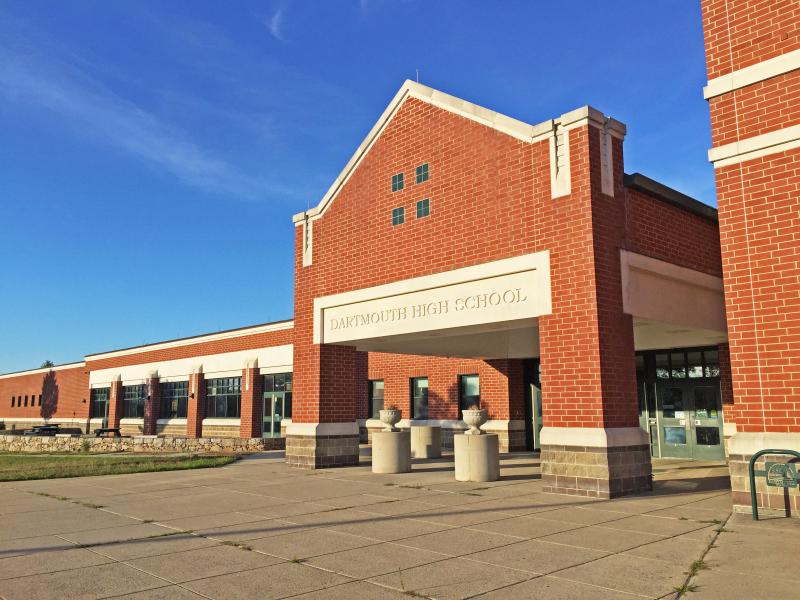Free breakfast and lunch becomes permanent at Dartmouth Public Schools
Students at Dartmouth Public Schools, along with every public school in Massachusetts, will never again need to pay for school breakfast and lunch.
The state’s 2024 budget included $172 million dollars to permanently fund public school meals, with some of the funding coming from the state’s new “millionaire tax” on the wealthiest residents.
This is not the first year that students are leaving their lunch money at home. Last year, public schools received temporary funding for one year to pay for student meals, which Dartmouth Food Service Director Jeanne Sheridan said led to an increase in the number of students who eat meals provided by the school. Now, 70 to 75 percent of students in Dartmouth Public Schools eat cafeteria breakfast and lunch.
The permanent program pays for just the first meal at each meal period; if a student wants a second serving, they’ll need to pay.
Providing free or reduced-cost meals to students is not a new concept, but the practice has previously been limited to low-income students. Now, every student will receive those meals in perpetuity regardless of household income.
“It takes the stigma related to what type of meal you receive completely off the table, which is absolutely great,” said Food Service Director Jeanne Sheridan.
Kids need meals every day to learn properly, Sheridan said, and there’s always a few students that end up in the nurse’s office with a headache from not eating enough.
“I am happy Massachusetts has made this choice, this is an equity thing,” said Ryan Shea, principal of Dartmouth High School. “We know kids with full bellies learn better.”
With extra funding freed up, the universal school meal program also allowed Dartmouth to acquire extra staffing at every school level.
The program presents one potential snafu: without a need for free or reduced-cost lunch, parents may not fill out the forms, which are used to measure need requirements for federal grants.
“We do encourage families to fill out the forms for free or reduced lunch that come from the state,” said Elizabeth Correia, DeMello Elementary School’s principal. “That plays a huge role in the Title 1 funding.”
Title 1 is a federal grant program that provides extra funding for schools that serve low-income students.
At the high school level, the administration feels that it will be their responsibility to ensure those forms are still getting filled out, by reminding families of the other savings it could bring.
“Students benefit from [filling out the forms] for all the College Board exams, like SATs, PSATs [and] AP exams,” said Rachel Chavier, associate principal of Dartmouth High School. “There are a lot of other [ways] they can benefit.”












